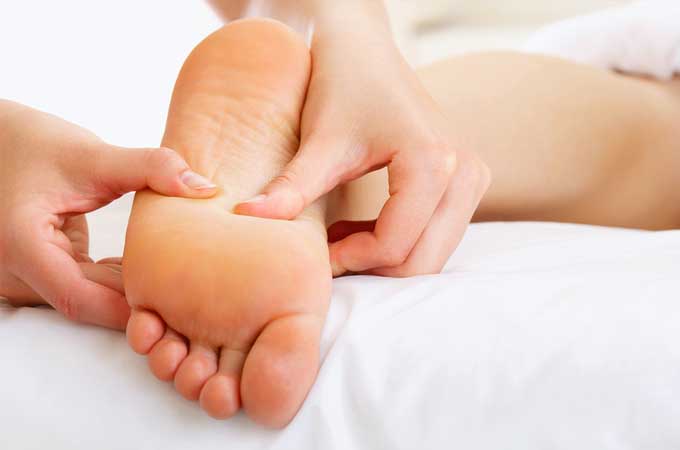Are you pregnant? If so, are your feet swelling?
Swollen feet during pregnancy is one of the most common pregnancy symptoms known to womankind. As pregnancy progresses, the swollen feet phenomenon can get worse, and it can be extremely painful. Worse, trying to find comfortable shoes that not only fit, but don’t hurt your feet can be a challenge.
There are many reasons why your feet swell during pregnancy. The most obvious reason is simple. With pregnancy, your body retains extra fluids. Match extra fluids with gravity, and you have a recipe for swollen feet and ankles that can throb and ache, as well as turn red, purple and blue. Believe it or not, woman also gain weight in their feet during pregnancy. And making matters worse, pregnancy causes an increase in the hormone called relaxin, which causes your bones to spread out. Heck, some women’s feet even grow a half to a full size during pregnancy which will facilitate a shoe shopping spree after you give birth. (Fun, right?)
On a more serious note however, edema – otherwise known as the swelling of the extremities is something that you and your health care provider should keep a watch on. While a certain amount of swelling is certainly considered normal, extreme swelling – or watching your feet turn purple or blue is not. Swelling that comes on suddenly, or spreads to the upper thighs and even the face, should be considered an emergency and warrant a trip to your physician. Additionally, any swelling that is accompanied by red streaks or ‘fever’ could be a sign of a blood clot and should be dealt with professionally. In some cases excess swelling of the feet is attributed to pre-eclampsia, which is pregnancy induced hypertension. Your doctor should be able to monitor your swelling during your regular visits to make sure that you are not experiencing pre-eclampsia which can also cause headaches, blurred vision, excessive weight gain and irritability.
If your feet are swelling there are some simple things that you can do to ease the pain. First and foremost, make sure that you get your feet up as much as possible. Even if you have an office job, get something to prop your feet up on during the day to help distribute the fluid from your feet to the rest of your body. Feet should be elevated 12 inches above your heart whenever possible. Additionally, you should avoid wearing any tight shoes during pregnancy. Even so, find shoes that give you support and don’t be afraid to toss your pre-pregnancy ideals of shoe fashion out of the window in order to keep yourself comfortable. Soaking your feet in Epsom salt is another good way to naturally relieve some of the swelling. Drinking plenty of fluids is another important aspect in keeping your feet from swelling. While it may seem counter-intuitive, the more water you drink, the more fluids your body will be able to flush from your body. Last, but certainly not least – try to avoid hot, and humid conditions which are conducive to swelling. If you are going to be in the heat and humidity, use cold compresses on your feet from time to time to help take out some of the swelling. At the end of the day, if your feet are very swollen – you can also soak your feet in cold water, or use ice packs to relieve the pain associated with foot swelling.
The good news is that after you have your baby, the swelling in your feet should subside. Your feet may still be a size larger, but they won’t be privy to the throbbing pain and swelling experienced by pregnancy.
Written By Stef, Mom of 4@MOM-Spirational
This information is not intended to replace the advice of a trained medical doctor. Health & Parenting Ltd disclaims any liability for the decisions you make based on this information, which is provided to you on a general information basis only and not as a substitute for personalized medical advice. All contents copyright © Health & Parenting Ltd 2017. All rights reserved.










